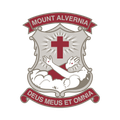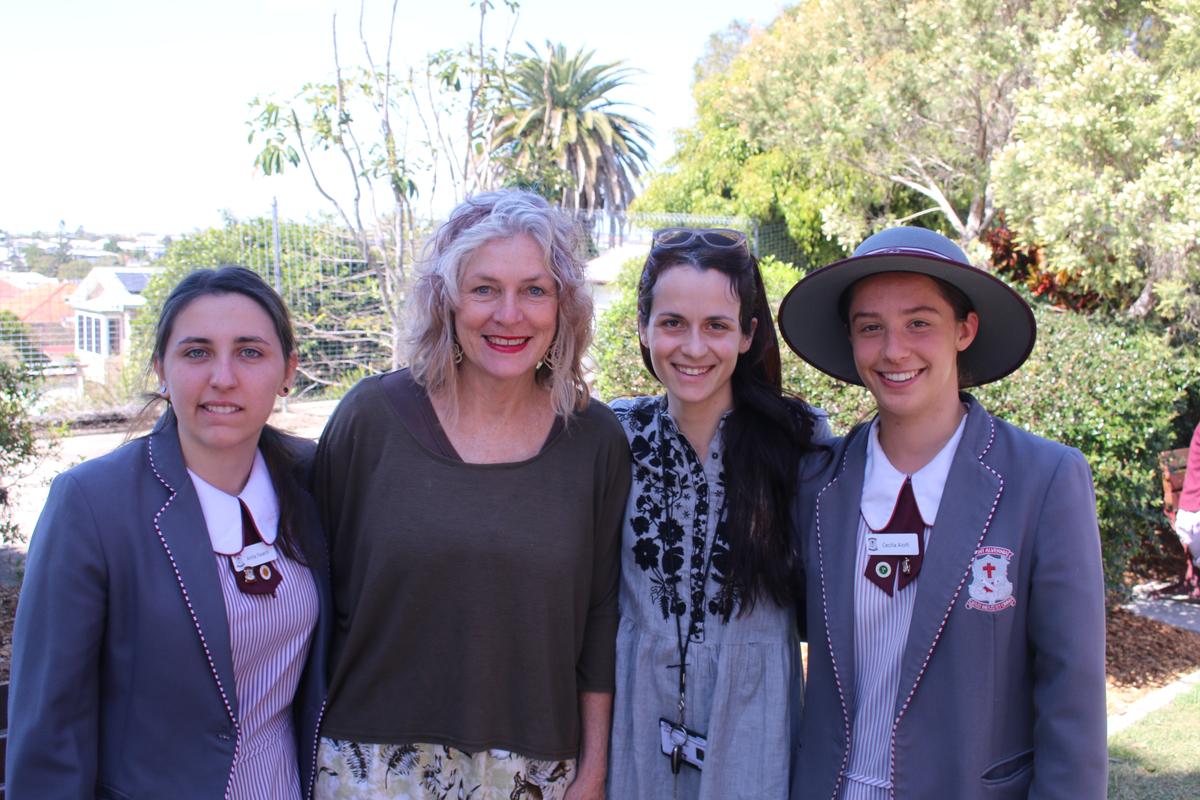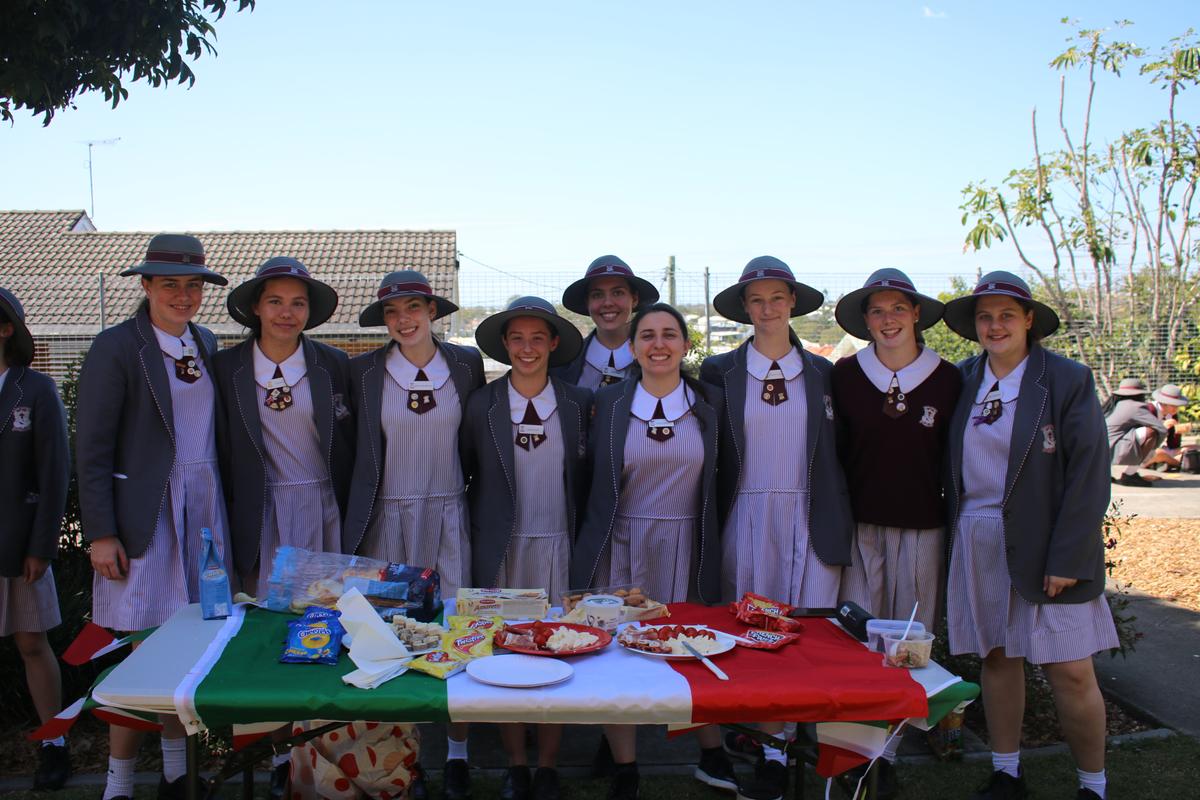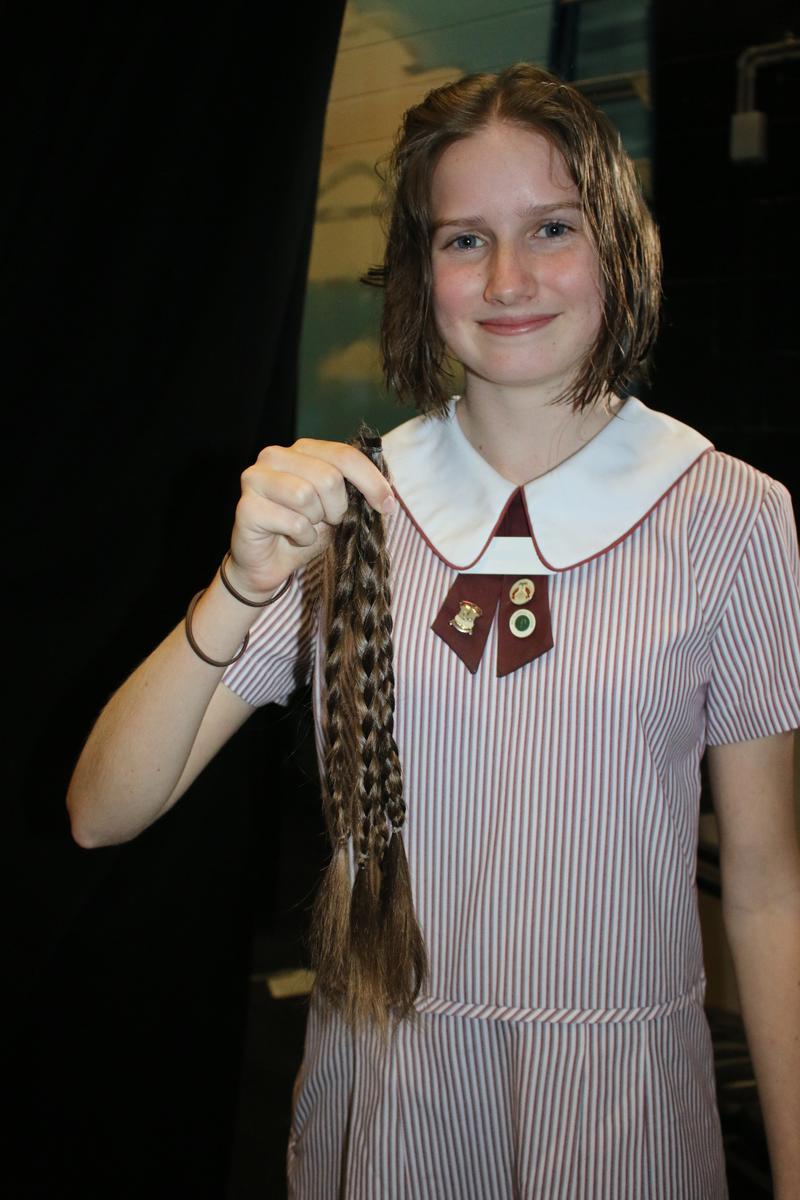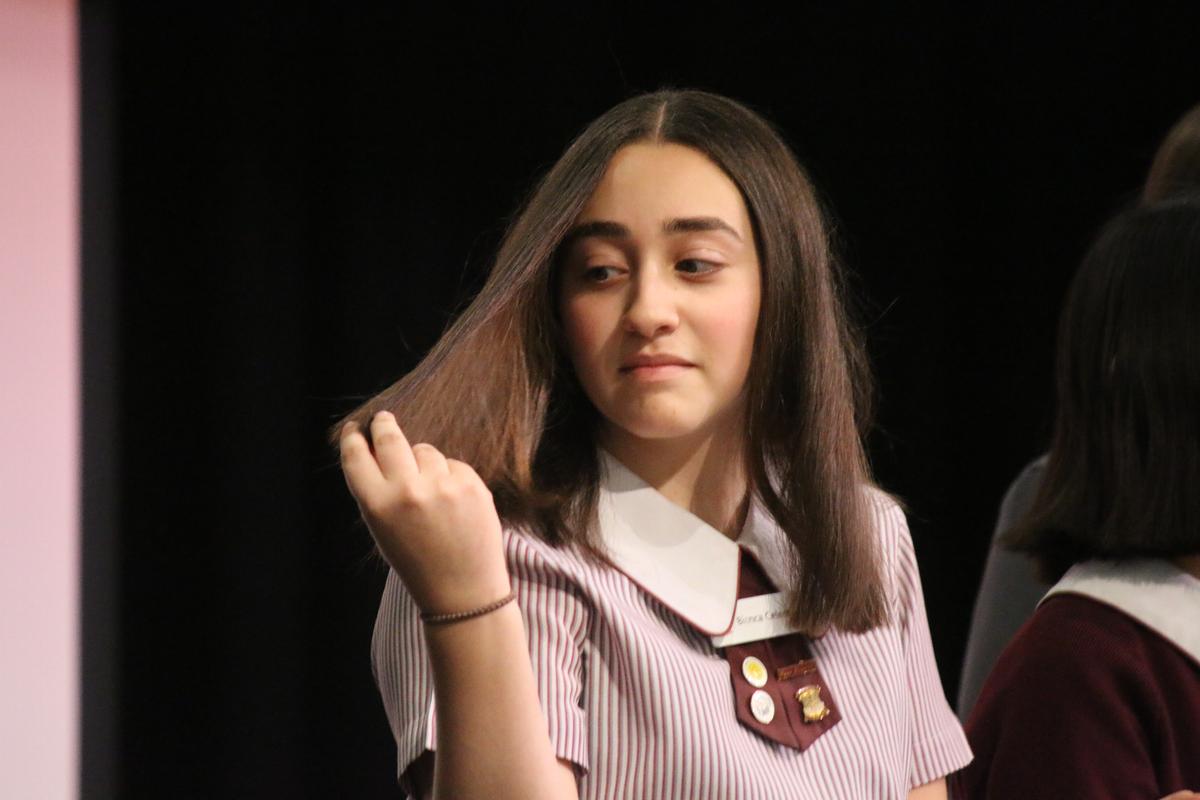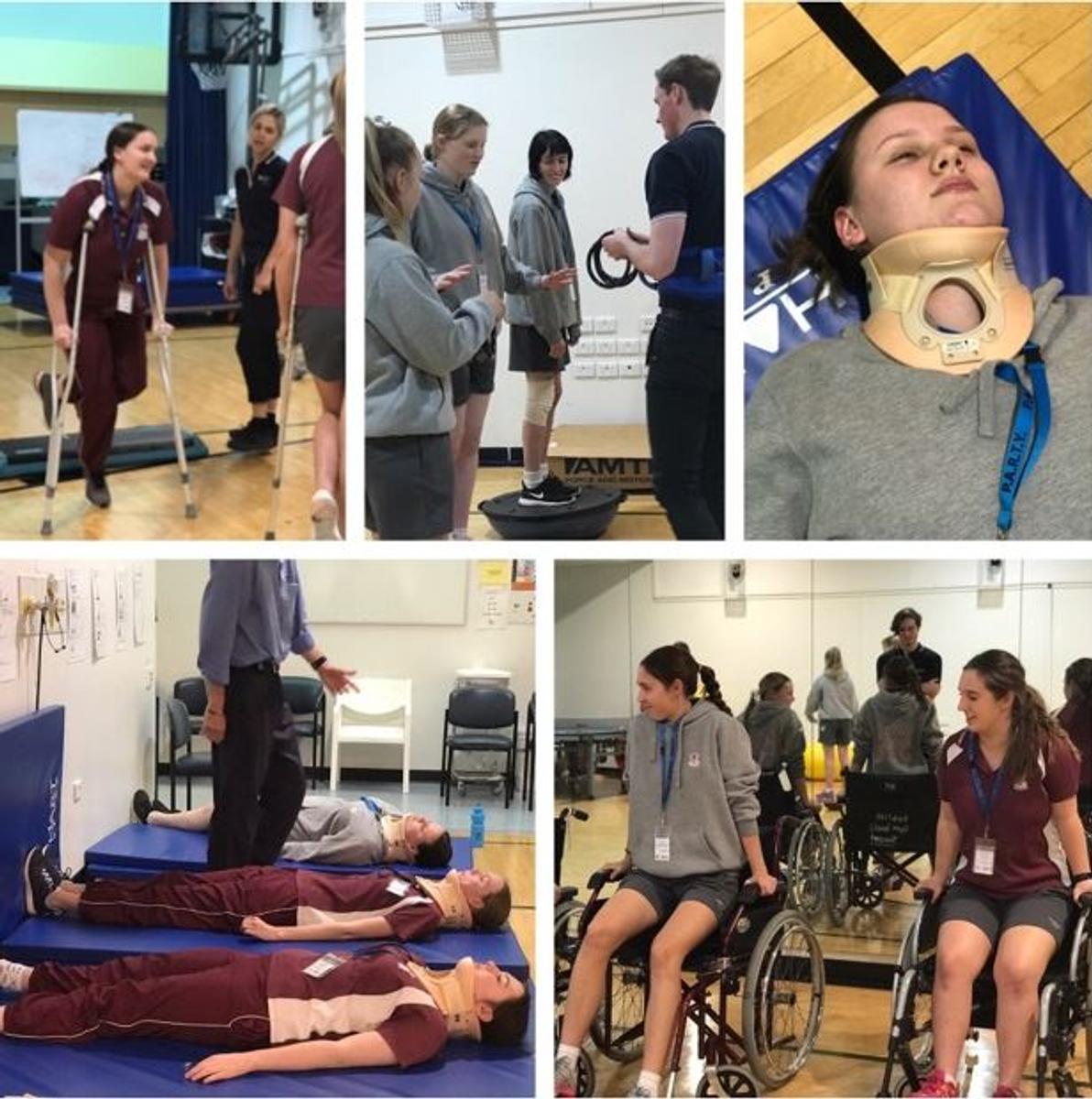Year 11 Pastoral Guardian
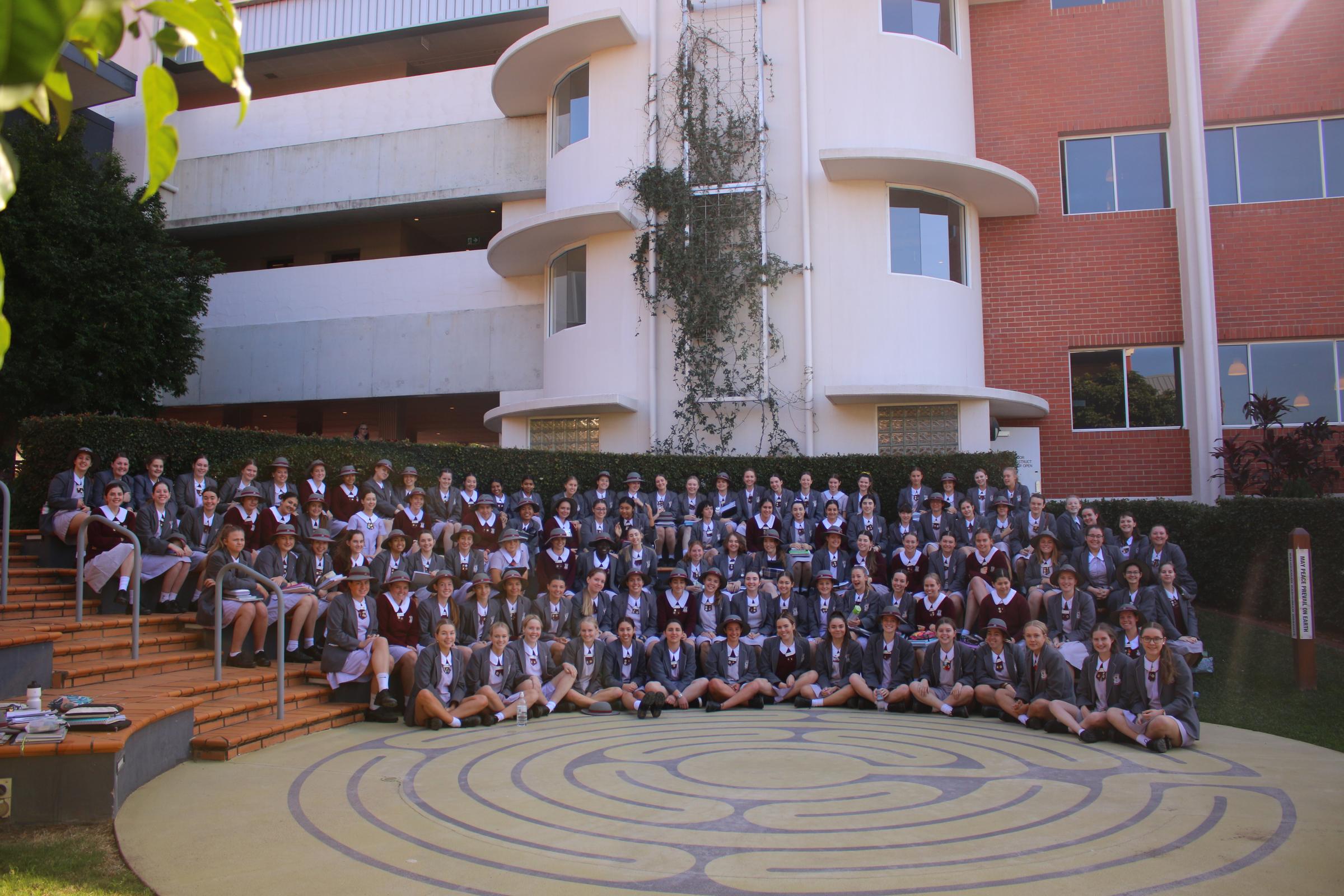
How did you see Year 11s 'Having a Go' This Term?
I would have to acknowledge that one of the most amazing shout-outs this term in our Year 11 cohort in 'having a go' has been the exciting adventure of our Italian Exchange students, Cecilia Aiolfi and Anita Paiardi, who travelled all the way across the world to live for ten weeks in a country where people predominantly do not speak their language, to live in immersion in an Australian homestay, to attend a school that is very different in curriculum and learning to Italian subjects, to operate every day in another language, and to experience some of the dreams of experiencing life in Australia. Our generous homestay families and the Year 11 friends who welcomed our exchange students 'had a go' in learning about another culture, language, and lifestyle of sixteen-year-olds from Italy and were sad to farewell our Italian friends. However, it was a two-way enriched experience, and these are valuable, lifelong friendships that have been created. Please see their words at the bottom of this page.
I asked the Year 11’s what 'having a go' meant to them:
Sarah Galvin and Bianca Celere having their hair cut for the Ponytail Project is having a go to do something to make a difference.
Lauren Holding
Anything to do with public speaking is having a go because you are putting yourself out there and leading and inspiring others.
Sophia Fasone
Mount Alvernia Voices joined with choirs all around Brisbane and performed at QPAC with more than 500 other choristers for Brisbane Sings. They had to volunteer and give take up the time and perform in a once-in-a-lifetime experience.
Mikayla Prentice
Students nominating for leadership participated in a Public Speaking Program as part of the Raise the Bar Program and delivered their speeches confidently to an audience this week. Students who stepped out of their comfort zones to nominate, be interviewed, and present their vision to the College for leadership positions are having a go.
Amy Turner
It seems Year 11s are all about 'having a go' in so many ways.
This Wednesday, 41 Year 11 students attended the RBWH PARTY (Prevent Alcohol and Risk-related Trauma in Youth), and every one of our young women 'had a go' at facing some confronting realities of the choices in life that some people make in a moment that changes their lives and the lives of their families, friends and others forever.
P.A.R.T.Y. Program Student Reflections
Attending the P.A.R.T.Y. program was an extremely valuable, eye-opening. and worthwhile experience. Through realistic videos, activities, presentations, and interactive simulated clinical scenarios, we learnt what it was really like to be a trauma patient. We had the opportunity of meeting a number of health professionals, including paramedics, trauma nurses, social workers, speech pathologists, dieticians, physiotherapists, and occupational therapists, who all help severely injured patients every day. We also had the chance to meet some trauma patients themselves who have been lucky enough to survive, but now suffer significant disabilities.
Tillie Weinert
The main lesson I took away from this experience was that the only person responsible for making choices that will increase my risk of injury is me. I believe everyone needs to experience a day like this to fully come to terms with the effects of risk taking behaviours. As confronting and daunting as parts of the program were, I walked away immensely moved by the experience. I commend the P.A.R.T.Y. program for its profound effort in making positive change, to preventative behaviours which could possibly save a life.
Imagine a world where we didn't normalise these incidents; a world where we don’t glorify risk taking behaviours and ignore the consequences. Imagine a world where we all understood. And so I say thank you to the P.A.R.T.Y. program, for making an impact and a difference.
Lauren Holding
The P.A.R.T.Y. program was a real eye-opening and confronting experience for me, as you always hear that accidents can happen but never realise that they can happen to you. The program taught me that you only have one chance at life so do not waste it by participating in harmful activities.
The organisers and medical presenters reiterated to our young women how valuable they are as young people for our future. Our participants will be sharing their valuable reflections, experiences, and messages with the Year 11 cohort in our next Year level meeting. Thank you to the parents and carers who nominated their daughters to participate in this extremely worthwhile life-changing program.
I look forward to hearing from students and parents about other wonderful examples of how your daughters are really out there 'having a go'.
Karen Farrow
Conversation Starters
Tell me about the good choices you have made recently.
If your daughter was on the P.A.R.T.Y. Program: Share with me what you have taken away from this experience.
How do you maintain positivity in the face of obstacles?
In what ways are you or could you be out there 'having a go'?
From Our Italian Exchange Students
Cecilia and Anita addressed Assembly last week before their return to Italy.
Buongiorno a tutti, I am Cecilia Aiolfi and she is Anita Paiardi.
We are the exchange students from Italy and this is our last week here, so we would like to talk about our experience.
Cecilia: I come from Piacenza, a small town in the north of Italy. The city was founded by Romans as a military colony and in 1095 the declaration of the first crusade took place. Today the city is well known for the production of good salami.
Anita: I am from Brescia; it’s a city founded by the Romans and it’s known for its ten-days-battle against the Austrian army in 1849 that earned it the name The Lioness of Italy. It’s got a lot of ancient buildings among which the ruins of a Roman temple.
We decided to come here to improve our English and to experience a different culture. During these ten weeks we have tried Australian food, Australian school, we have lived a totally Australian life, and we have found some differences between our lifestyle and yours. First off you have lunch at eleven and dinner at six, while we usually have lunch at one and dinner at eight. Another thing is that here most of you have a job, we don’t because we spend a lot more time studying. In fact school in Italy is very different from here. For instance, we don’t have to wear uniforms, we don’t have lockers, we don’t have a different classroom for every subject, and therefore we have the same classmates all day every day for our five years of high school … But the greatest differences are the subjects that we study and the method that we use to do so.
We have twelve subjects: Italian, Maths, English, History, Philosophy, Art, Science, Physics, PE, Religion, Latin, and Ancient Greek, but some of them can change from school to school; for example, Cecilia studies Ancient Greek, I study the difficult Maths. So now you’re probably wondering: why would you study subjects like History, Philosophy and Latin? They are useless. Okay, so I won’t lie. That’s a good question. I have been wondering this for a long time. Everyone has moments where they just stop and think: “Wait, why am I doing this?” Because, by investigating the past, we can fully understand the present and try to build a brilliant future without making the same mistakes.
We have to study a lot at home: we study like four hours a day every day and most days even more. I think that the way we study is interesting. While the teacher is explaining the lesson we usually take notes (with a pen … because we don’t have computers), then at home we read the notes and the corresponding pages on the book (usually 30-40 pages), we underline the most important things and the main concepts, and after that we repeat, as if we had to explain the lesson to someone else. Exams are weird. They can be either written or oral. Most of the time written exams are scheduled but not the oral ones. Teachers usually don’t tell students when they will be tested. Oral exams are a constant threat. So, yes, it’s hard, but we think it’s worth it. We have to be prepared every time for every subject but, in the end, if you study well, you remember all the stuff you studied and then boom! You’re a cultured person.
With all these differences you can imagine our surprise when we came in this school. At first it is an amazing building with a pool, a big gym, a canteen, and lots of big rooms. In Italy we are lucky if our school doesn’t fall apart on our heads! We were also really impressed by the friendly atmosphere that there is in the classrooms and in the school in general. Here you can feel teachers and staff care about the students and their well being. For example, in Italy we don’t have things like the spirituality day that can help us to be more confident with ourselves and our classmates. Furthermore the school here doesn’t care only about your studies, but gives you the chance to enjoy lots of different extra activities that help you to develop you not only as a student, but also as a person with your individual interests and values. At this point we can say that it has been an extraordinary experience that allowed us to grow as a person and to appreciate the world from another point of view.
Now we would like to thank the school and the Principal who has allowed us to be here. We want to thank all the teachers and the staff who had so much patience to be able to tolerate us. We want to give a special thank you to all the girls who welcomed us, helped us, and made this experience absolutely unforgettable.
And we want to thank Eliana Ranalli and Millie Troe for hosting us and welcoming us as part of the family.
